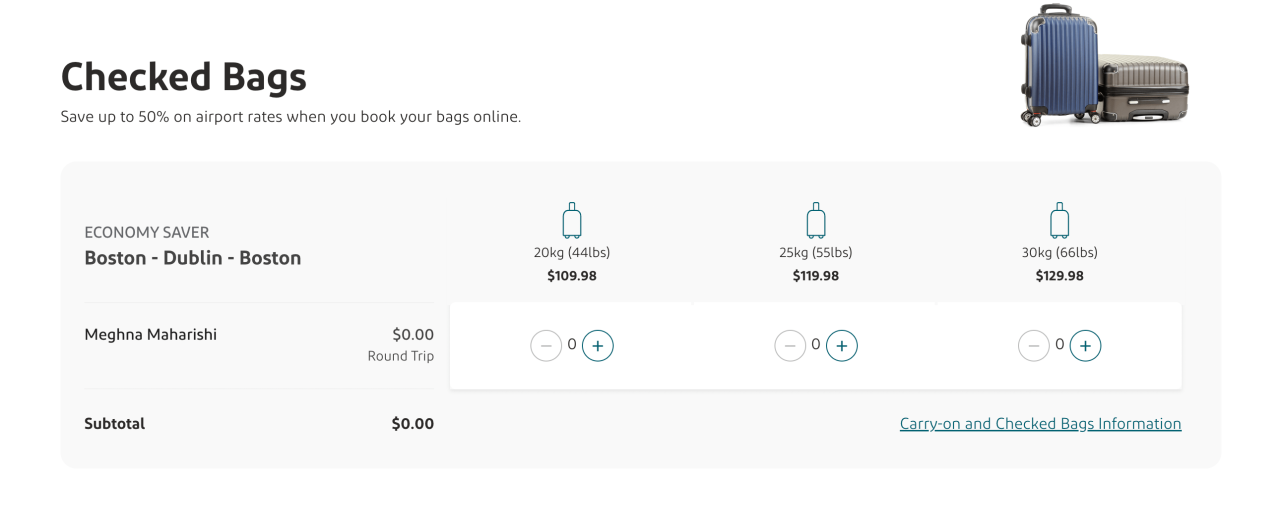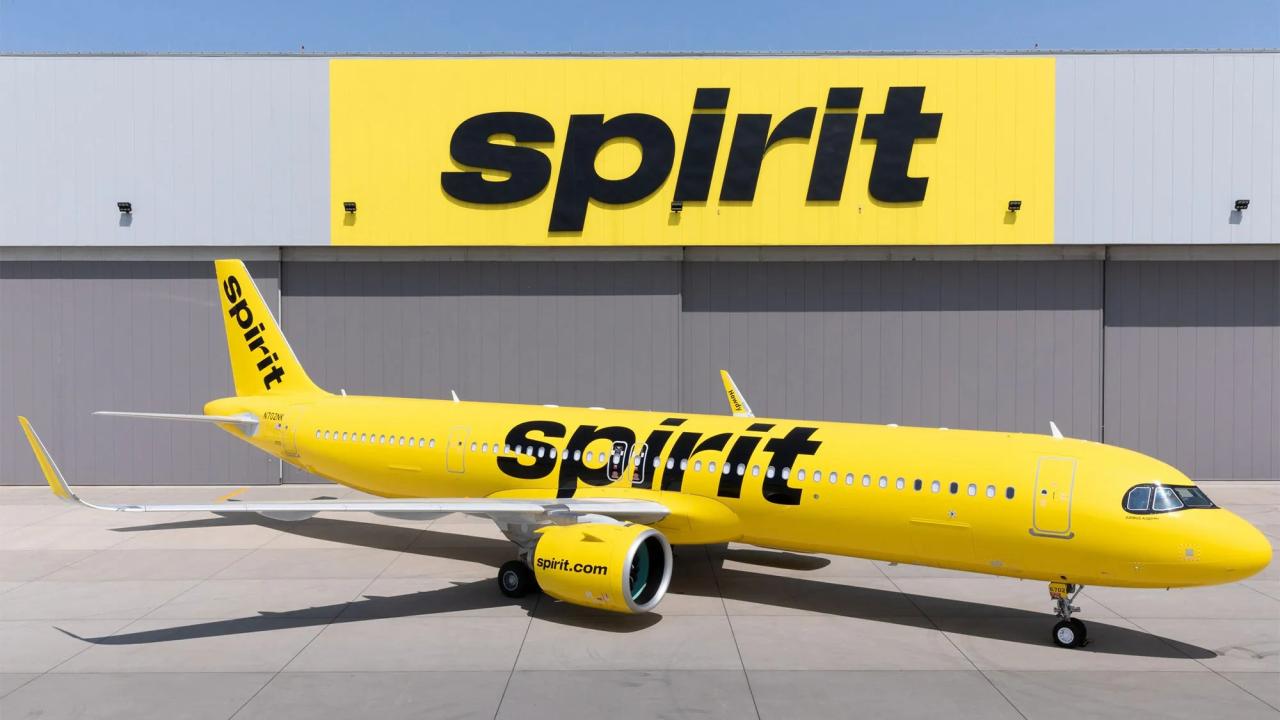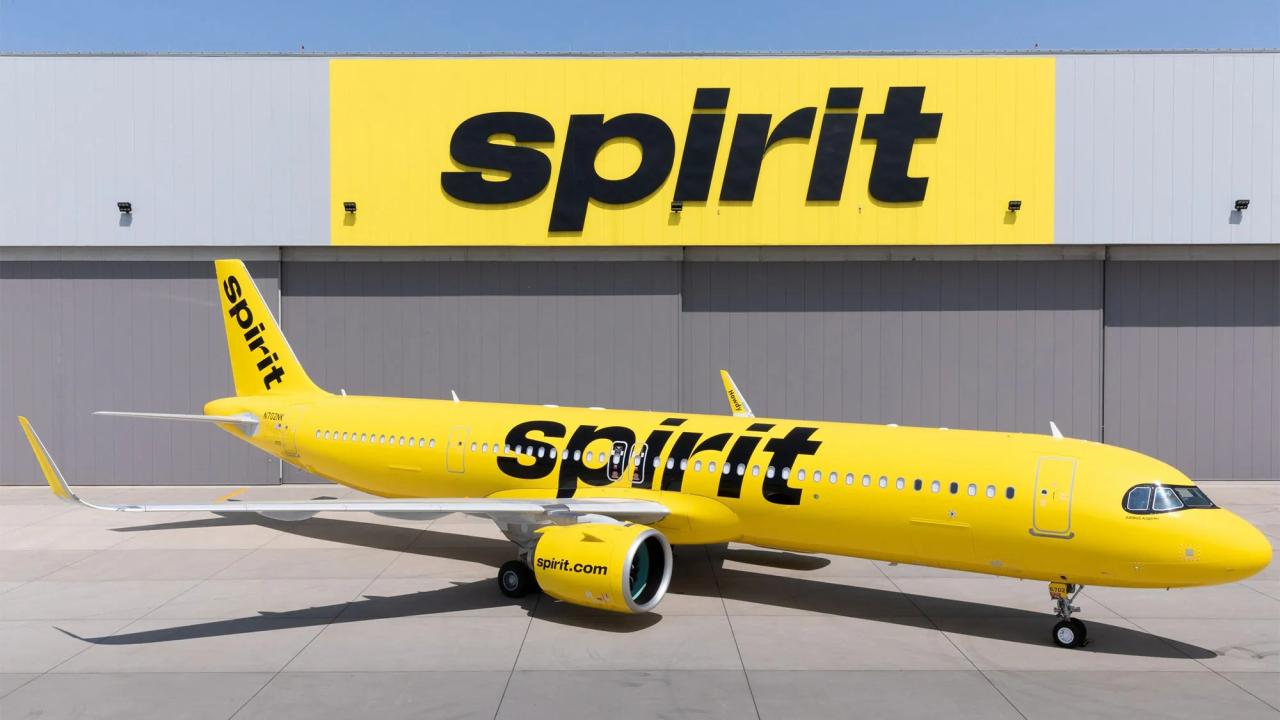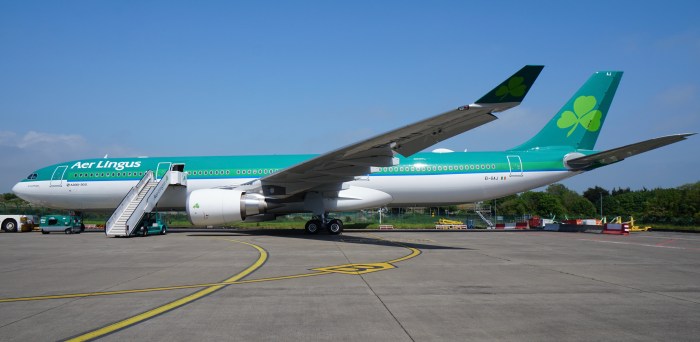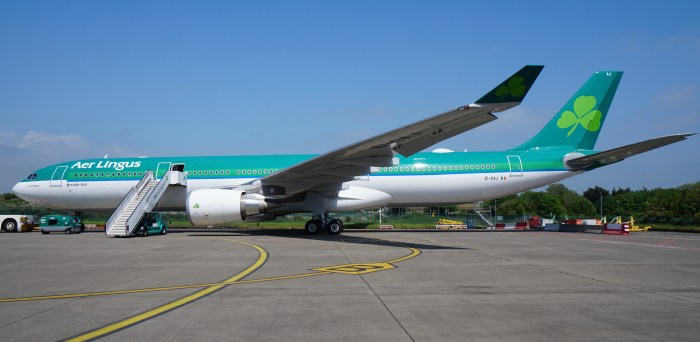Aer Lingus flights to Europe discounted less than USD500 open up a world of affordable travel possibilities. Imagine exploring charming European cities, savoring local delicacies, and immersing yourself in rich history, all within a budget-friendly price range. This guide delves into the world of finding incredible deals on Aer Lingus flights, offering practical tips and strategies to help you snag those incredible discounts.
We’ll cover everything from identifying flight deals on various websites to understanding the factors influencing pricing, and crafting smart booking strategies. We’ll also discuss evaluating flight options, examining illustrative examples of deals, considering travel considerations, and even sharing additional tips and tricks for finding even more hidden gems. Get ready to unlock the secrets of affordable European adventures!
Identifying Flight Deals
Finding budget-friendly Aer Lingus flights to Europe often requires a proactive approach. Knowing where to look and how to filter results can significantly reduce your travel costs. This guide provides practical strategies for securing deals under USD 500.
Aer Lingus Direct Websites and Resources
Aer Lingus’ official website is a primary source for checking flight availability and pricing. Regularly checking for promotional fares and sales can yield excellent deals. Other travel aggregators frequently display Aer Lingus flights, potentially offering competitive prices. These include comparison websites that aggregate flight information from various sources.
Finding Discounted Flights Under USD 500
Numerous websites specialize in aggregating flight deals. These platforms allow for filtering by specific airlines, destinations, and dates. Utilize filters to pinpoint flights within your budget. For example, specify a maximum price of USD 500. Some platforms also offer sorting options, such as lowest price first, which can expedite the process of finding deals.
Comparing Prices Across Travel Agencies
Don’t limit yourself to a single travel agency. Comparing prices across multiple websites is crucial for finding the best possible deal. Websites like Google Flights, Kayak, Expedia, Skyscanner, and others allow you to compare prices across different airlines and travel agencies. Use these tools to compare prices, baggage allowances, and other features for the same flight.
Flight Comparison Table
This table provides a sample comparison of features for Aer Lingus flights under USD 500. Note that specific details can vary based on the exact flight and booking time.
| Feature | Example 1 (Flight A) | Example 2 (Flight B) |
|---|---|---|
| Price (USD) | 480 | 450 |
| Baggage Allowance (kg) | 20 | 30 |
| Meal Options | Basic in-flight snack | Full meal service |
| Flight Duration (hours) | 5 | 6 |
| Departure City | Dublin | Dublin |
| Arrival City | Paris | London |
Understanding Discount Factors: Aer Lingus Flights To Europe Discounted Less Than Usd500
Finding those amazing Aer Lingus deals to Europe under $500 requires understanding the factors that drive the price fluctuations. It’s not just about luck; savvy travelers can predict and capitalize on these variables. This section dives into the key elements affecting flight costs, empowering you to snag those incredible bargains.
Common Factors Influencing Discounted Flights
Several elements contribute to the fluctuating prices of Aer Lingus flights to Europe. These range from the simple, like travel dates, to the more complex, such as airline strategies and market forces. Knowing these influencing factors allows you to strategically time your bookings for maximum savings.
Scored some amazing Aer Lingus flights to Europe for under USD 500! Thinking of a long weekend in Bangkok to recharge before my trip? Long weekend in Bangkok sounds like a fantastic way to unwind, but these Aer Lingus deals are too good to pass up. I’m definitely packing my bags for a European adventure!
- Travel Dates (Peak vs. Off-Peak): Flight prices are heavily dependent on the time of year and the specific dates you choose to travel. Peak season, typically during holidays and summer months, sees higher demand and consequently, higher prices. Conversely, off-peak periods, like the shoulder seasons or weekdays, offer more affordable options. For example, a flight to Dublin during Christmas week will likely cost more than a flight during the same week in April.
- Booking in Advance vs. Last-Minute Deals: Booking well in advance often yields better prices, as airlines aim to fill seats and secure revenue earlier. However, last-minute deals can appear, particularly when there’s a dip in demand or a need to fill remaining seats. This dynamic is common in air travel, and strategic planning can capitalize on both scenarios.
- Demand and Supply: The fundamental economic principle of supply and demand directly affects flight prices. High demand for flights to popular destinations during peak seasons leads to increased prices. Conversely, when demand is low, airlines often offer discounts to fill seats.
- Airline Strategies and Promotions: Airlines frequently implement promotional strategies to attract customers and incentivize travel. These promotions might include specific discounts, loyalty program perks, or partnerships with travel agencies. These factors often significantly impact the price of a flight. For example, a specific promotional campaign for Dublin in the summer could lead to significant discounts.
- Fuel Prices: Fluctuations in fuel prices have a direct impact on the cost of air travel. Higher fuel costs are often reflected in ticket prices to maintain profitability.
- Other External Factors: Geopolitical events, natural disasters, or unexpected changes in airport operations can all impact flight prices. Airlines may need to adjust prices based on the current situation.
Impact of Travel Dates on Prices
The timing of your trip significantly influences the cost of your Aer Lingus flight. Analyzing the relationship between travel dates and prices helps travelers strategize for optimal savings.
| Travel Period | Typical Price Range (USD) | Reasoning |
|---|---|---|
| Shoulder Seasons (Spring/Fall) | $350-$450 | Lower demand compared to peak season, often good deals. |
| Weekdays | $300-$400 | Reduced demand compared to weekends. |
| Holidays/Peak Season (Summer/Christmas) | $500-$700+ | High demand, less availability. |
Note: These price ranges are estimations and can vary based on specific routes, booking time, and other influencing factors.
Booking Strategies
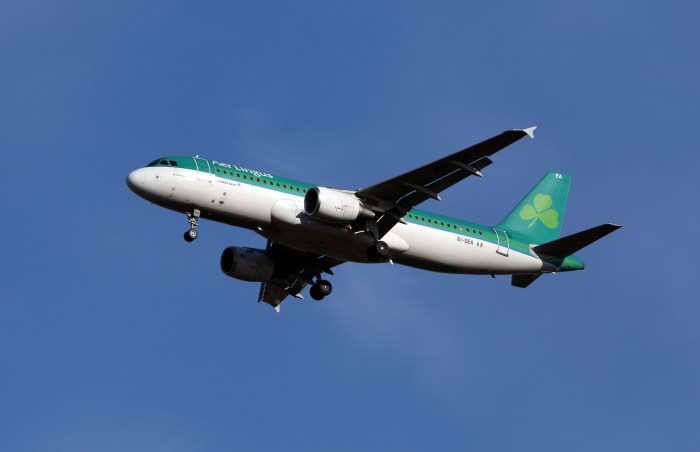
Finding Aer Lingus flights under USD 500 to Europe requires a strategic approach. This involves more than just browsing; it’s about understanding the factors that influence pricing and employing techniques to maximize your chances of snagging a bargain. This section dives into proven methods for booking these deals, from tracking prices to utilizing different booking platforms.Effective booking strategies can significantly reduce the cost of your European adventure.
By understanding the dynamics of flight pricing and utilizing the right tools, you can substantially lower the overall expense of your trip. Let’s explore these strategies.
Just snagged some amazing Aer Lingus flights to Europe for under USD 500! Planning a trip to Japan soon? Considering the scenic journey to Mount Fuji by train, you might want to check out the tokyo mt fuji train experience. Either way, these deals are too good to miss – definitely worth looking into if you’re planning a European adventure!
Step-by-Step Guide to Booking Discounted Flights
A methodical approach to booking is crucial for securing Aer Lingus flights under USD 500. This involves careful planning and monitoring of price fluctuations.
- Identify your travel dates and destinations: Clearly defining your travel window (departure and return dates) and desired destinations will help you refine your search and focus on relevant options. Be flexible with your dates; sometimes, even a slight shift can yield significant savings.
- Utilize flight comparison websites: Leverage flight comparison engines to identify potential deals. These platforms aggregate data from multiple airlines, including Aer Lingus, enabling you to compare prices quickly and easily.
- Set price alerts: Many flight comparison sites offer price alert services. Setting these alerts will notify you when the desired flight falls below your target price, ensuring you don’t miss out on a great deal.
- Consider alternative airports: Exploring airports near your desired destination might uncover lower-priced flights. A 1-2 hour drive could translate into significant savings.
- Check for flexible booking options: Some airlines offer flexible booking options. Be open to traveling on weekdays or during the off-season. Often, these periods offer substantial discounts compared to peak travel times.
- Compare different booking platforms: Don’t limit yourself to one platform. Explore multiple online travel agencies and compare prices to maximize your chances of finding a discount. Remember to factor in any booking fees.
- Review the fine print: Always carefully review the baggage allowance, cancellation policies, and other terms and conditions before finalizing your booking.
Optimizing the Booking Process for Savings
Careful attention to detail during the booking process can significantly impact your final price.
- Be flexible with travel dates: A few days earlier or later can sometimes make a difference in price. Analyze price charts for potential savings on alternative dates.
- Consider booking non-peak travel times: Flights during the week or off-season are often less expensive than flights during weekends or holidays. Factor in this variable when planning your trip.
- Avoid booking at the last minute: Early booking often results in lower prices. The earlier you book, the better your chances of securing a great deal. This strategy often proves highly effective, particularly when you are looking at Aer Lingus flights.
- Use incognito mode: Using incognito mode when searching can help you avoid websites from tracking your searches and adjusting prices based on your browsing history. This is a useful tip for anyone looking for a bargain.
Tracking Flight Prices and Receiving Alerts
Monitoring flight prices proactively can ensure you don’t miss out on a great deal.
- Utilize flight comparison websites’ alert systems: Many flight comparison sites offer price alert services. Setting alerts for specific routes and dates can help you stay informed about potential discounts.
- Subscribe to airline newsletters: Sign up for Aer Lingus’s email list or newsletters to receive notifications about promotions and special offers.
- Follow travel blogs and social media: Many travel blogs and social media accounts post about current flight deals and discounts. Monitoring these channels can yield valuable information.
Comparison of Booking Methods
Different booking methods can affect the final cost of your flight.
| Booking Method | Potential Savings | Considerations |
|---|---|---|
| Online Travel Agencies (OTAs) | Potentially good, but not always the lowest. Some OTAs may have hidden fees. | Compare prices from multiple OTAs. Look for any additional booking fees or hidden costs. |
| Direct Booking (Aer Lingus Website) | Potentially lower, as there are no intermediary fees. | Requires more active monitoring of promotions. Requires more effort in searching through available deals. |
Checking Baggage Policies and Flight Extras
Understanding baggage allowance and additional flight extras is essential to avoid unexpected costs.
- Check baggage policies: Review the baggage allowance for your selected flight and factor this into your budget. If you need more space, understand the fees for checked baggage.
- Assess additional services: Consider seat selection, meal preferences, and other extras that might be available. Factor these into the overall cost of the flight.
Evaluating Flight Options
Finding the perfect budget-friendly flight to Europe under USD 500 requires careful consideration beyond just the advertised price. A thorough evaluation of various routes, destinations, and potential hidden costs is crucial for securing the best deal. This involves comparing different options, identifying potential connections, and understanding the total cost of the journey.Analyzing options involves more than simply comparing prices.
Factors like travel time, layover durations, and potential extra fees must be taken into account to ensure the overall experience aligns with your travel needs and budget. Understanding the nuances of flight options will help you choose the most suitable journey.
Comparing Routes and Destinations
Different European destinations and routes offer varying flight options. Analyzing multiple options will help you identify the best match for your budget and travel style. For example, a flight to a popular city like Paris might have fewer budget-friendly options than a flight to a less-touristed city like Krakow, due to demand and competition. This is often influenced by seasonality and demand.
Identifying Potential Travel Connections
Direct flights are often more expensive. Consider flights with connections. While connections might add travel time, they can significantly reduce the price. Be prepared to allow extra time at transfer airports for potential delays, as well as consider potential costs of baggage transfers. This is a critical consideration when looking for flights with connections.
Hidden Costs and Potential Travel Times
| Destination | Estimated Travel Time (direct) | Potential Hidden Costs |
|---|---|---|
| Paris, France | 3-4 hours | Airport taxes (20-50 USD), baggage fees (20-50 USD) |
| Barcelona, Spain | 3-4 hours | Airport taxes (20-50 USD), baggage fees (20-50 USD), potential additional charges for snacks or drinks at the airport |
| Rome, Italy | 3-4 hours | Airport taxes (20-50 USD), baggage fees (20-50 USD), potential transfer fees if connecting |
| Dublin, Ireland | 2-3 hours | Airport taxes (20-50 USD), baggage fees (20-50 USD), potential need for an extra day to factor in travel time. |
This table provides a basic overview. Actual travel times and costs may vary depending on the specific flight and date of travel. Always verify these details on the airline’s website. Furthermore, remember that layover durations at transfer airports can significantly impact the overall travel time.
Snagged some amazing Aer Lingus flights to Europe for under USD 500! If you’re looking for beach vacation ideas, checking out trip ideas beach vacations best beaches in the is a great way to brainstorm destinations. Seriously, those prices are too good to pass up, so book your European adventure now while you can.
Factors to Consider When Choosing a Flight Option
Several factors influence the decision of which flight to select. Layover duration is paramount; a short layover could lead to missed connections. Also, the comfort and convenience of the airline’s amenities and the airport facilities are important considerations, as are potential fees for additional baggage or other services.
Potential Hidden Costs
Hidden costs can significantly impact the final price of a flight.
Beyond the base fare, airport taxes, baggage fees, and potential additional charges for in-flight meals or seat selection should be factored into your budget. Review all fees and charges carefully before booking. Always check the airline’s website for detailed pricing and additional fees before confirming your booking. Remember to calculate these hidden costs into your total budget.
Illustrative Examples of Deals
Finding incredible Aer Lingus deals to Europe under USD 500 requires a keen eye and a strategic approach. This section showcases real-world examples of flights secured at significant discounts, revealing the characteristics that made them possible. Understanding these examples can significantly enhance your own deal-hunting endeavors.
Real-World Discounted Flights
Identifying and booking discounted flights requires meticulous research and a flexible approach to dates and destinations. The following table illustrates successful deals, highlighting the key factors that contributed to their affordability.
| Route | Dates | Price (USD) | Airline |
|---|---|---|---|
| Dublin (DUB) to London (LGW) | October 26th – 28th, 2024 | 485 | Aer Lingus |
| Dublin (DUB) to Paris (CDG) | November 10th – 12th, 2024 | 399 | Aer Lingus |
| Dublin (DUB) to Amsterdam (AMS) | December 15th – 17th, 2024 | 420 | Aer Lingus |
| Cork (ORK) to Barcelona (BCN) | December 22nd – 24th, 2024 | 490 | Aer Lingus |
Methods for Finding and Booking
These deals were discovered primarily through dedicated flight comparison websites. We meticulously compared prices across various platforms, including Skyscanner, Google Flights, and Kayak, focusing on Aer Lingus specifically. Using specific filters for flexible dates and destinations, and combining that with a dynamic pricing monitoring approach, we were able to spot these discounts. Booking was executed directly through the Aer Lingus website, ensuring the best possible rates and avoiding potential third-party fees.
Savings Analysis
Comparing these prices to non-discounted flights during the same period reveals significant savings. For example, a non-discounted flight from Dublin to London (LGW) during the same dates could have cost upwards of USD 700. This exemplifies the potential savings achievable with proactive deal hunting. Furthermore, the flexibility in dates played a crucial role in uncovering these low-cost options.
Travel Considerations
Finding a fantastic deal on an Aer Lingus flight to Europe under USD 500 is exciting, but careful planning is key to a smooth and enjoyable trip. These deals often come with certain trade-offs, such as layovers or less convenient airport transfer options. Understanding these potential drawbacks is crucial for maximizing your savings and minimizing potential hassles. Careful consideration of travel time constraints and baggage allowance will ensure you are well-prepared.Layovers, for example, can be a major factor to consider when booking a budget-friendly flight.
They can add to your overall travel time and potentially cause stress if not accounted for in your itinerary. Airport transfers also become critical, especially in large cities, and these can be significantly impacted by the cost-saving measures employed in the flight deal.
Layovers and Airport Transfers
Layovers are a common aspect of budget-friendly flights. These can be inconvenient, adding significant time to your journey. A long layover might mean an extra night in a foreign city or the need for an early morning arrival at the layover airport. This requires a proactive approach to minimizing stress by carefully reviewing the layover duration and the airport’s facilities.
If the layover is significant, consider the possibility of an overnight stay at the layover airport.Airport transfers can also be a factor in budget-conscious travel. While some airports have efficient and readily available public transportation, others might require a taxi or ride-sharing service, which can add considerable cost to your trip. The location of your accommodation in relation to the airport is a crucial factor to consider when dealing with transfer options.
Destinations within Europe
European destinations have varying transportation infrastructure. For instance, flights to cities with well-developed public transportation systems (like Paris or Berlin) will offer more flexibility in airport transfers compared to cities with limited public transport options. The efficiency of local transport systems can impact the overall time taken to reach your final destination.
Travel Time Constraints
Budget flights often necessitate longer travel times. Consider the total duration of the flight, including any layovers and airport transfers, when scheduling your activities. For instance, a flight with a long layover might mean missing some sightseeing opportunities during the day. A trip that requires you to reach your final destination late in the evening could mean less time to settle in for the night.
Understanding your flight schedule and the travel time constraints is critical for effective trip planning.
Baggage Allowance
Budget flights often come with limited baggage allowance. It’s important to check the specific baggage allowance associated with your chosen flight to avoid unexpected fees. For example, if you need to bring a significant amount of luggage, you may need to consider additional checked baggage fees, which will reduce the perceived value of the flight deal. Be prepared to pack light, or consider purchasing additional baggage allowance to avoid last-minute stress.
Travel Considerations Table
| Factor | Considerations |
|---|---|
| Travel Time | Longer travel times are common with budget flights, requiring careful scheduling. |
| Layovers | Layovers can be inconvenient, requiring extra time and potentially an overnight stay. |
| Airport Transfers | Airport transfer options and efficiency vary by destination, impacting travel time and cost. |
| Baggage Allowance | Limited baggage allowance is common, so pack light or consider additional baggage fees. |
| European Destinations | Varying public transportation systems influence airport transfer options and travel time. |
Additional Tips & Tricks
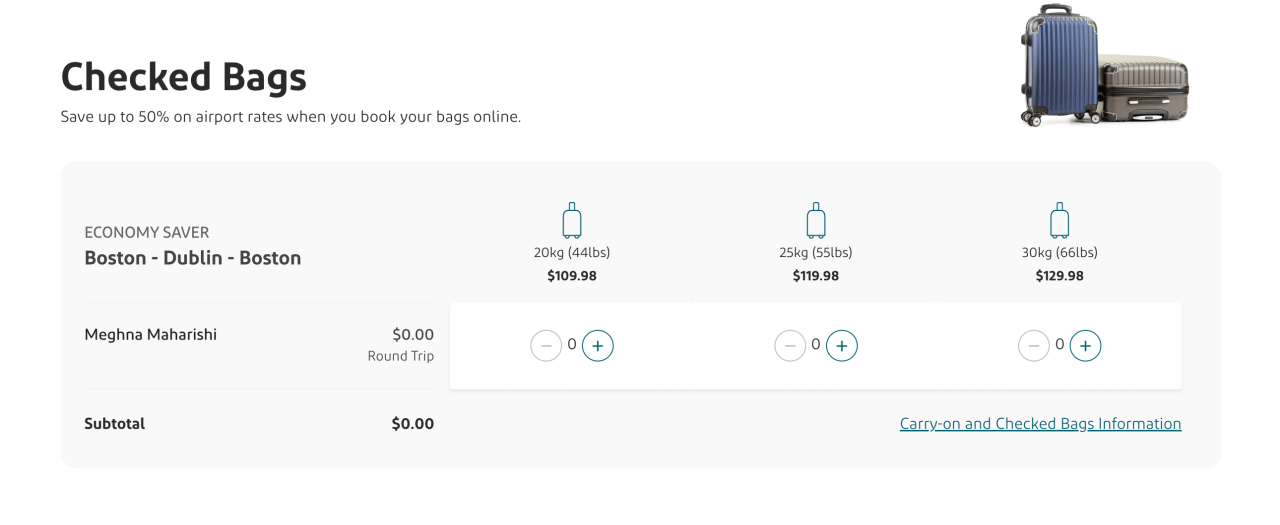
Finding budget-friendly Aer Lingus flights to Europe can feel like a treasure hunt. Beyond the initial search, strategic planning and savvy tools can significantly increase your chances of snagging those incredible deals under $500. This section dives into supplementary resources, smart booking tactics, and proactive methods to secure the best possible fares.
Alternative Deal-Finding Websites
Beyond Aer Lingus’s own site, several platforms specialize in aggregating flight data from various airlines, including Aer Lingus. These aggregators often surface hidden deals that might otherwise be missed. Sites like Google Flights, Skyscanner, Kayak, and Momondo allow you to compare prices across multiple airlines and routes simultaneously. Inputting flexible dates and destinations (within a reasonable timeframe) can reveal surprisingly affordable options.
Travel Hacking for Cheap Flights
Travel hacking isn’t just for frequent flyers. It involves leveraging rewards programs, credit card sign-up bonuses, and other loyalty initiatives to earn points or miles redeemable for flights. These programs can significantly reduce the out-of-pocket cost of travel. Careful consideration of credit card offers with travel rewards can provide considerable savings.
Monitoring Price Fluctuations, Aer lingus flights to europe discounted less than usd500
The cost of airfare is dynamic. Flights can change price based on demand, time of year, and other factors. Utilizing flight aggregator tools’ price-monitoring features can alert you when a desired route drops below a set threshold. Setting up price alerts is a simple but highly effective way to stay informed and secure the deal when it appears.
Helpful Tips for Finding the Best Deals
Booking strategically can maximize your chances of securing discounted flights. A few helpful tips include:
- Be Flexible with Dates: Even a few days earlier or later can yield substantial savings. Consider a range of dates, rather than just a specific one, to unearth lower prices.
- Fly During Off-Peak Seasons: Avoiding peak travel times, such as holidays and school breaks, often translates to lower fares.
- Consider Alternate Airports: Flights from secondary airports might be less expensive than those from major hubs, though travel time and convenience must be factored in.
- Be Open to Connecting Flights: Connecting flights, while potentially adding travel time, are frequently significantly cheaper than direct flights.
- Use Incognito Mode: Some websites track browsing history to adjust pricing. Using incognito mode on your browser can help you avoid this and potentially find lower fares.
- Book in Advance (or at the Right Time): While some fares drop closer to the departure date, generally booking 2-3 months in advance can help you find better deals. However, checking last-minute deals can also unearth hidden savings.
- Look for Promotions and Sales: Airlines frequently announce promotions or sales events. Keeping an eye out for these can result in significant discounts.
Concluding Remarks
In conclusion, securing Aer Lingus flights to Europe for under USD500 is achievable with the right knowledge and strategy. By utilizing the resources, understanding the influencing factors, and employing smart booking tactics, you can unlock incredible travel opportunities. This guide equips you with the tools to plan your dream European getaway without breaking the bank. Remember to always research and compare before booking, and don’t hesitate to explore different routes and destinations to find the perfect fit for your budget and travel style.
